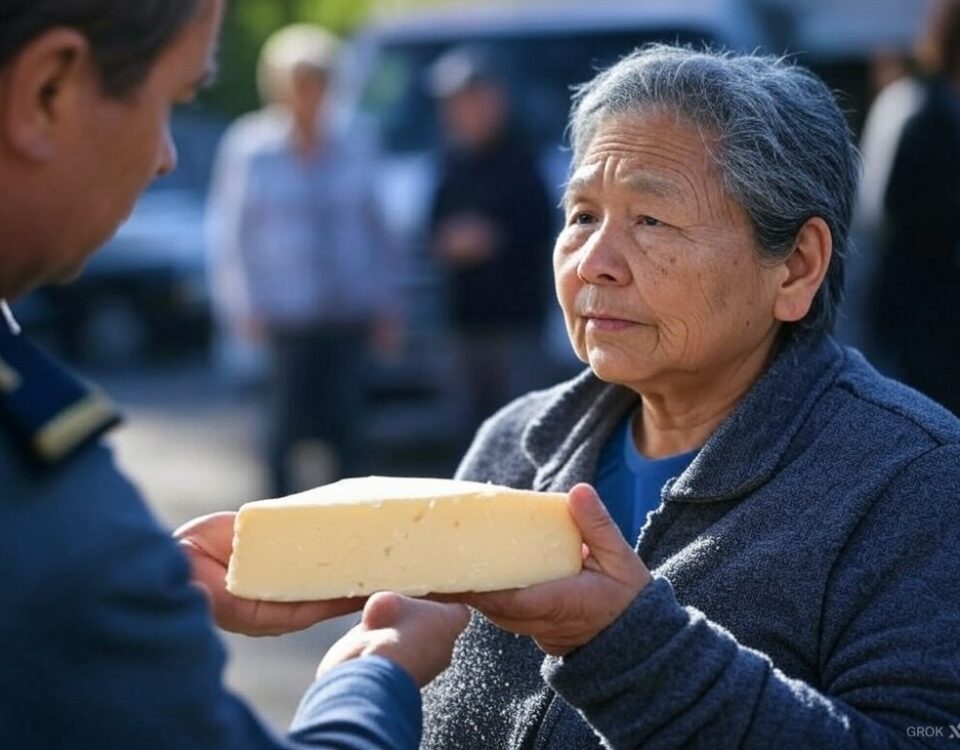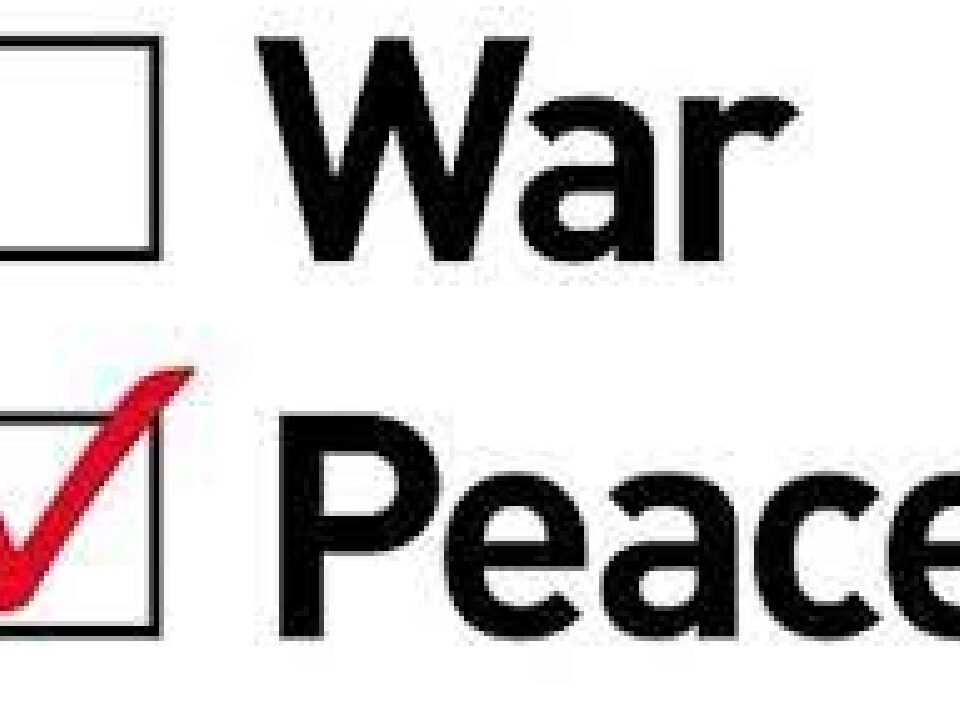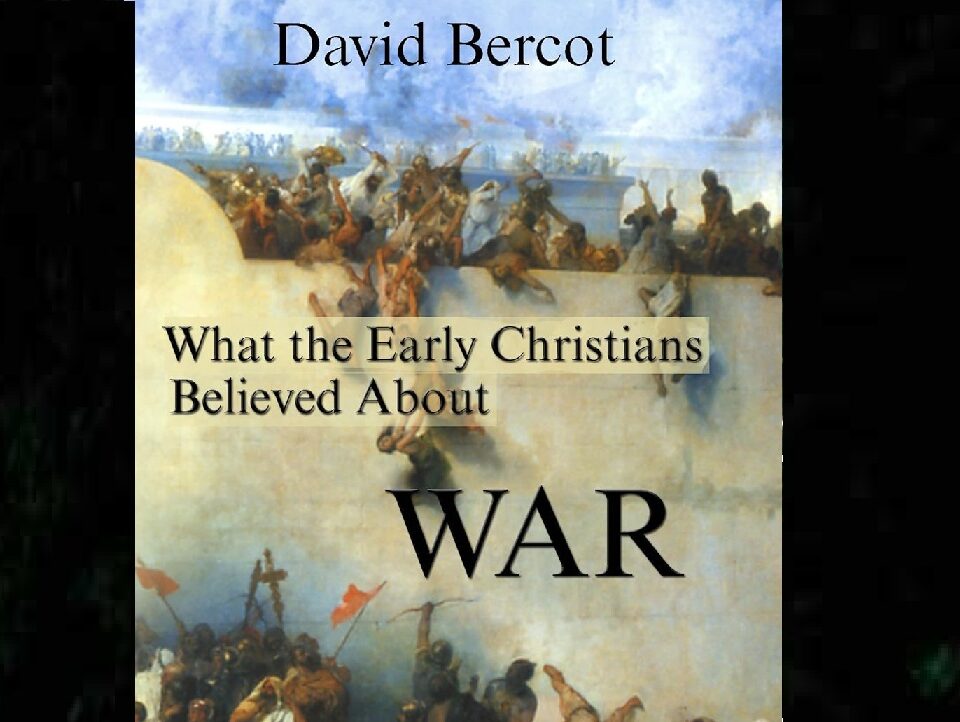Evangelical Approaches to Christian Participation in War: An Inquiry and a Proposal
Larry Mattera, M.A. (OXON.), M.A.TH.
Does justice require violence?
The question leads full circle back to the question of Christian participation in war. And it is precisely here—at the critical juncture between justice and violence—that Christian nonviolence is most seriously and consistently called into question. Critics complain that pacifists fail properly to balance their commitment to nonviolence with other, equally important ethical commitments, such as love of neighbor and the command to work for justice in society. In this view, the pacifist’s one-sided deontological bias against the use of harmful or lethal force cannot do justice to the complexity of ethical decisions in the social and political realms. Christians exist during the “time between the times” when sin and evil continue to permeate all spheres of life. They cannot stand by idly in the face of tyranny or aggression and remain morally unimplicated in its consequences. Thus the supposed moral superiority of nonviolence is a dangerous illusion.
The violence of war is a tragic but necessary cost which must be weighed against other commitments and especially against the human suffering caused by injustice, oppression or unjust aggression. Violence is already present in such situations. Therefore, if the advance of evil cannot be halted by peaceful means, violent force will be necessary to check aggression and to establish or restore peace and justice. Under such circumstances the moral legitimacy of violence is an important but secondary question, and pacifists who seek to make it the primary question are morally hypocritical and politically naïve. Violence, however tragic, is a moral imperative if it serves the cause of justice.
It is important at this point to observe the similarities and differences between two highly influential approaches that justify the use of violence in the cause of justice: “just war” and liberation theology. Of course, the question of violence (understood as lethal force) is not the primary concern of liberation theology. Liberation theology is rather a theological and socio-political hermeneutic that cannot within the total context of its thought avoid the question of violence, whereas just war is a moral tradition concerned with the justification and limitation of war. The point of this note is therefore limited to the observation that both approaches view violence as the unfortunate but necessary means to achieve justice, and that both seek to make the question of its moral legitimacy ethically secondary to other commitments. Yet, while both just war and liberation theology agree upon the necessity of violence, they stand in tension on the question of who may employ violence. It is instructive at this point to sketch briefly their contrasting answers to this question.
In “just war” thought individuals qua individuals do not possess the right to use lethal force against injustice—only individuals as agents of government do. This approach assumes that it is exclusively the prerogative of “the state” (a legitimate “authority”) to wage war, and that as submissive citizens, Christians may employ lethal force only when called upon by the state to do so. Liberation theology, by contrast, holds that in a “revolutionary situation” (a situation in which the structures of society perpetuate injustice and oppression and resist peaceful change), individuals or groups of individuals from within society are justified in using violence as a last resort (“liberating praxis”: revolutionary violence) in order to overthrow oppression, resist repression and establish justice. It is immediately clear where these approaches overlap.
In both models the reasoning advanced to justify violence is similar. Violence is a mechanism or instrument used against various forms of injustice in the service of positive social and political change. Furthermore, both models claim that the use of violence by Christians is not only a morally legitimate option, but rather that under specific circumstances it is a moral imperative. However, while just-war tradition allows only established, “legitimate” authorities to enjoin the use of violence for a just cause, the theology of liberation seeks to justify the violent, revolutionary overthrow of an irremediably oppressive established authority by individual subjects of that authority. Thus it becomes clear that while each model employs the same sort of ethical reasoning, politically and theologically each operates with very different assumptions—assumptions that call the other model radically into question. It is also immediately apparent why a person can be a proponent of one option and an opponent of the other. It is my contention, however, that at the ethical level, consistency requires the person who accepts either option in principle to accept them both. I do not see how proponents of just war who have rejected the legitimacy of revolutionary violence can escape the charge that they are instruments of oppression. In fact, it might be asserted that just war legitimizes the use of violence for the empowered while liberation theology legitimizes the use of violence for the disempowered. The difference, then, is between the violent use of power by the powerful and the violent quest for empowerment by the powerless. Yet both are alike in that they seek to legitimize violence in the cause of justice. And both launch much the same criticisms of pacifism.




